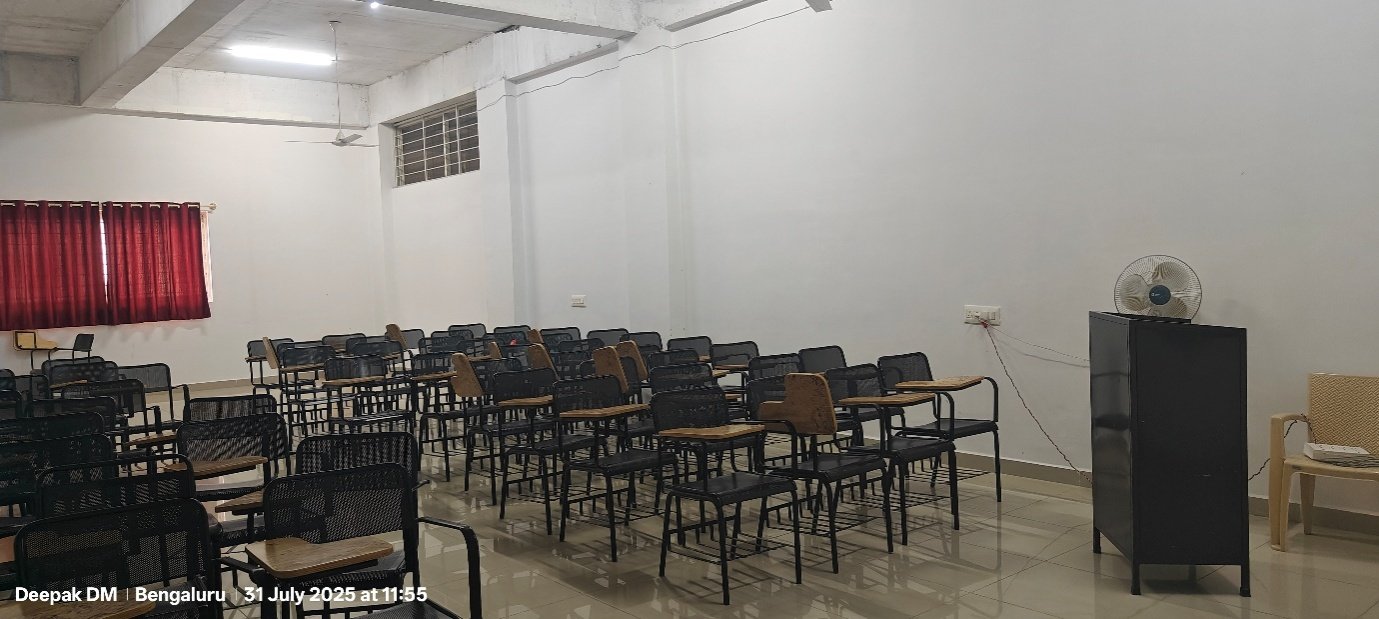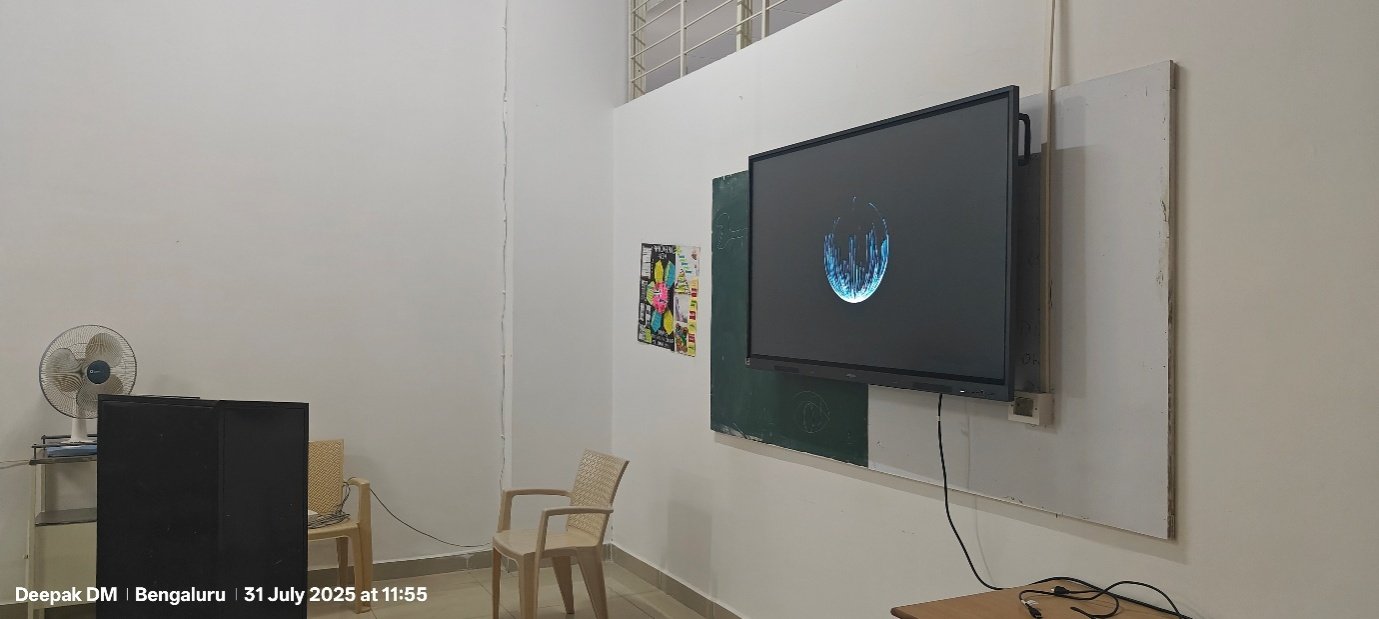DEPARTMENT OF PHARMACOLOGY
Pharmacology is the branch of medical science that deals with the study of drugs, including their origin, composition, chemical properties,mechanisms of action, pharmacokinetics (absorption, distribution, metabolism and excretion of drugs), pharmacodynamics (how drugs work), therapeutic uses, and adverse effects.
Department of Pharmacology plays a crucial role in medical education and research. It serves as a cornerstone in training future physicians by imparting knowledge of drugs, their mechanisms, interactions, therapeutic applications and help them to understand how to prescribe them safely and effectively along with rationale behind drug therapies used in various medical conditions.
The department has highly qualified medical faculty who are involved in research/publications as well as pharmacovigilance (Adverse Drug Reactions Monitoring) activities apart from teaching pharmacology to the students.Overall, the Department of Pharmacology plays a pivotal role in shaping competent healthcare professionals equipped with the knowledge and skills to navigate the complexities of modern pharmacotherapy.
Department of Pharmacology involved not only in teaching undergraduate students but also has post- graduate students (PGs)pursuing MD in Pharmacology, who play a vital and dynamic rolein academics, research, and departmental activities.
Teaching Pharmacology to MBBS Students:
Pharmacology is taught as a core subject during the second professional year of the MBBS course, as per the Competency-Based Medical Education (CBME) curriculum prescribed by RGUHS. The Department of Pharmacology aims to equip medical students with the foundational knowledge and practical skills essential for the safe and rational use of medicines in clinical practice.
Pictures of CAL (Computer-Assisted Learning) Lab:
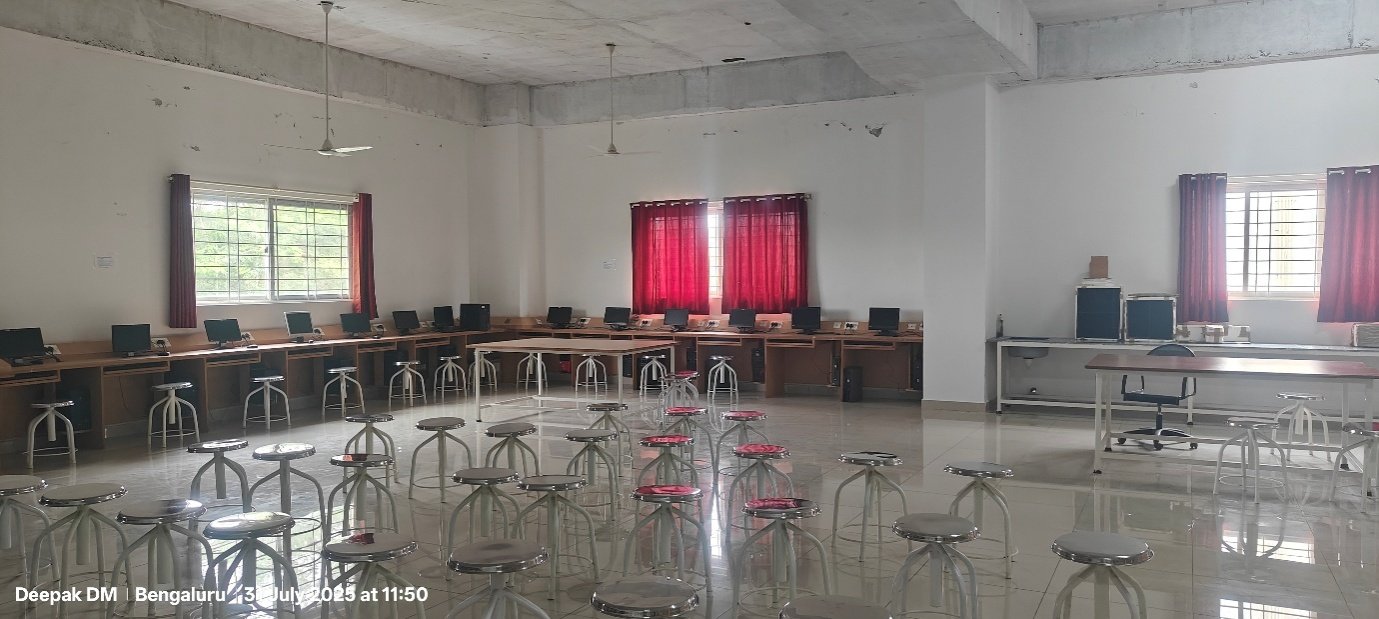
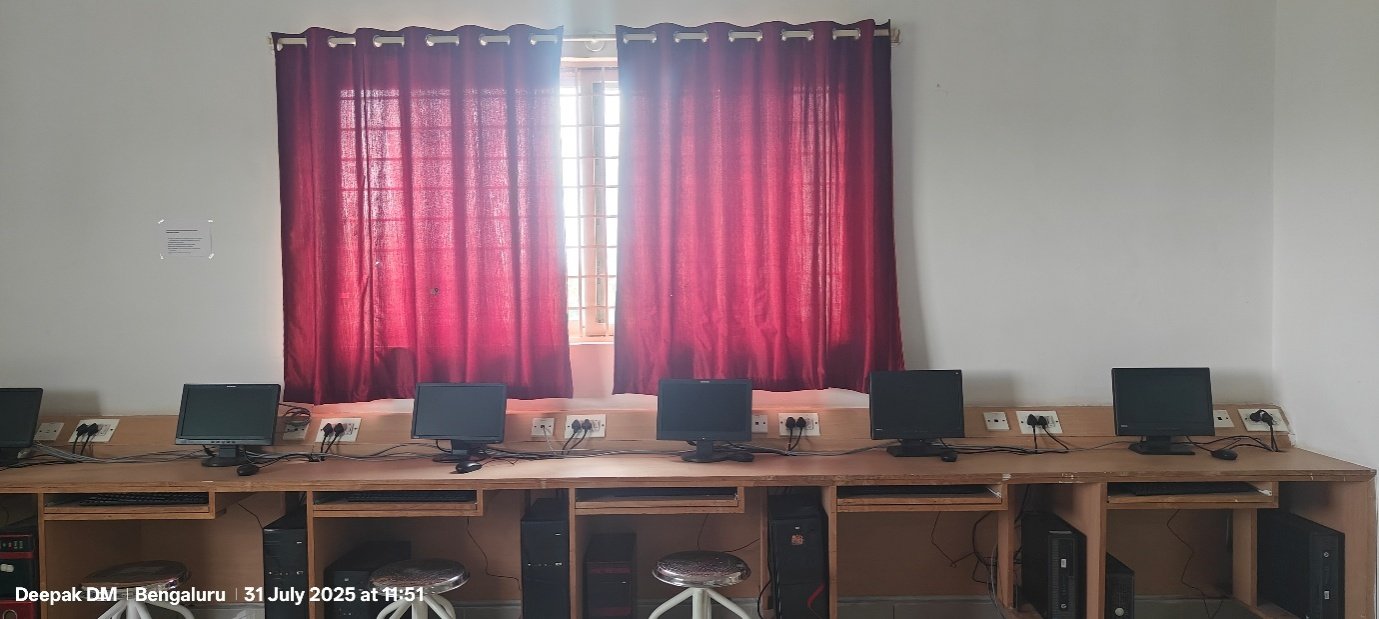
Computer-Assisted Learning(CAL) Lab:
As per the CBME (Competency-Based Medical Education) guidelines by the National Medical Commission (NMC) and RGUHS, Computer-Assisted Learning (CAL) practicals aim to:
Department of Pharmacology is well equipped with Library, well designated area to conduct practicals, Pharmacology Museum and Demo room where is classes are conducted to the small group of students.
Dedicated Pharmacovigilance (PV) Room:
Pharmacovigilance is crucial for monitoring the safety of medicines after they've been released into the market. The Pharmacovigilance Room in the Department of Pharmacology serves as a key center for ensuring drug safety through the detection, assessment, and prevention of adverse drug reactions (ADRs). It functions under the guidelines of the Pharmacovigilance Programme of India (PvPI), coordinated by the Indian Pharmacopoeia Commission (IPC)
PV Room:
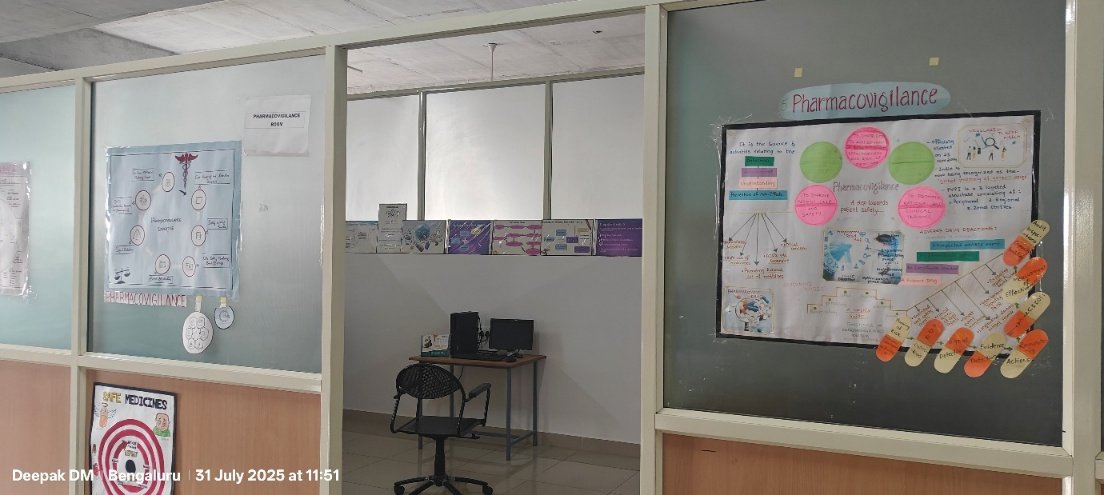
Pharmacology Department Library
The Department of Pharmacology maintains a well-stocked departmental library to support the academic and research needs of undergraduate students, postgraduate trainees, and faculty members. The library houses a curated collection of standard textbooks, reference books and Journals.The departmental library complements the central library and serves as a ready academic resource during seminars, journal clubs, and case discussions, fostering a culture of inquiry, learning, and evidence-based practice.
Pharmacology Department Library:
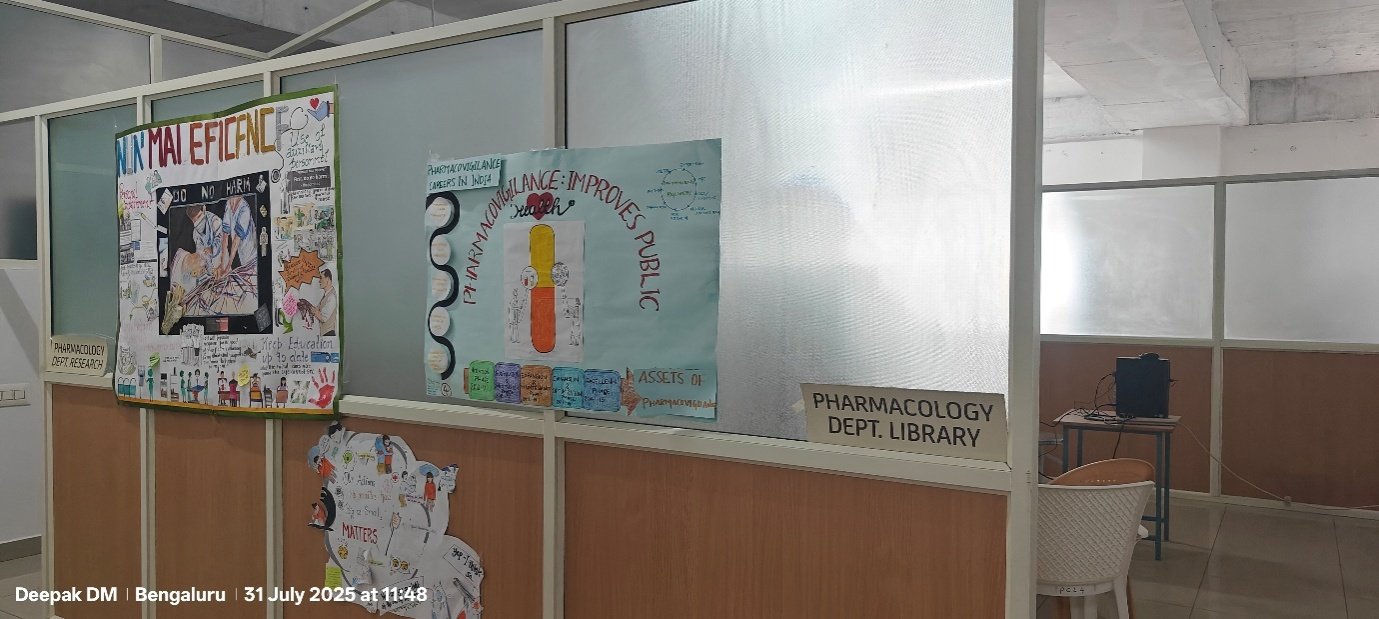
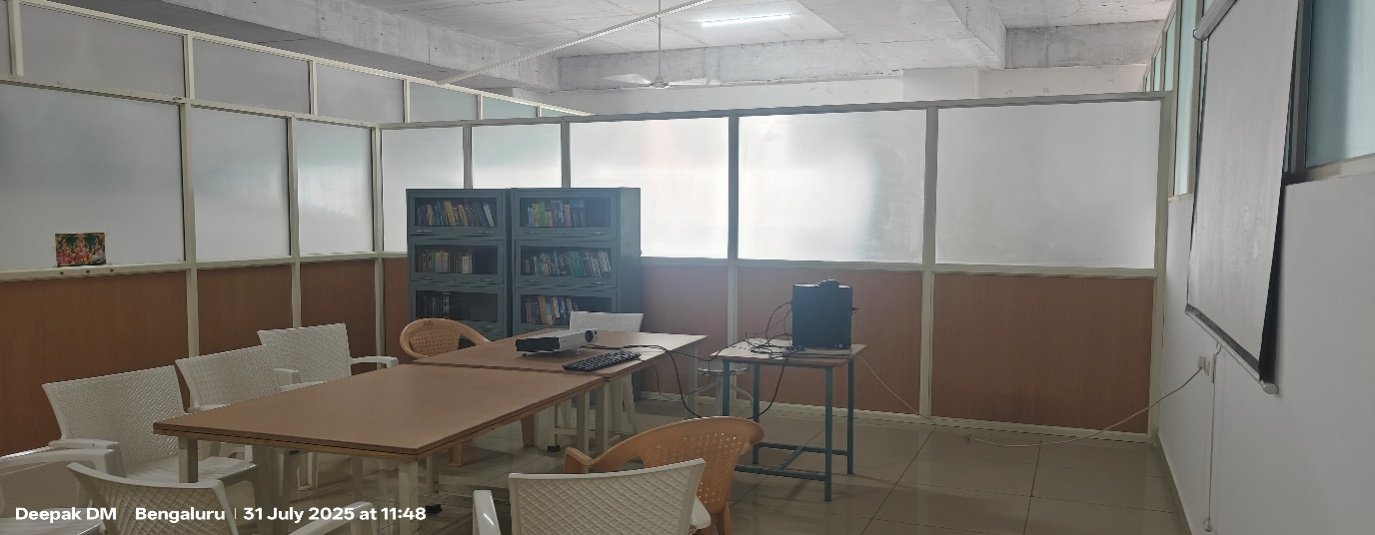
Pharmacology Museum:
It is an integral part of the Department of Pharmacology, designed to facilitate visual and experiential learning for the students. It serves as an educational resource that complements classroom teaching.
Key Highlights of the Museum:
Pharmacology Museum
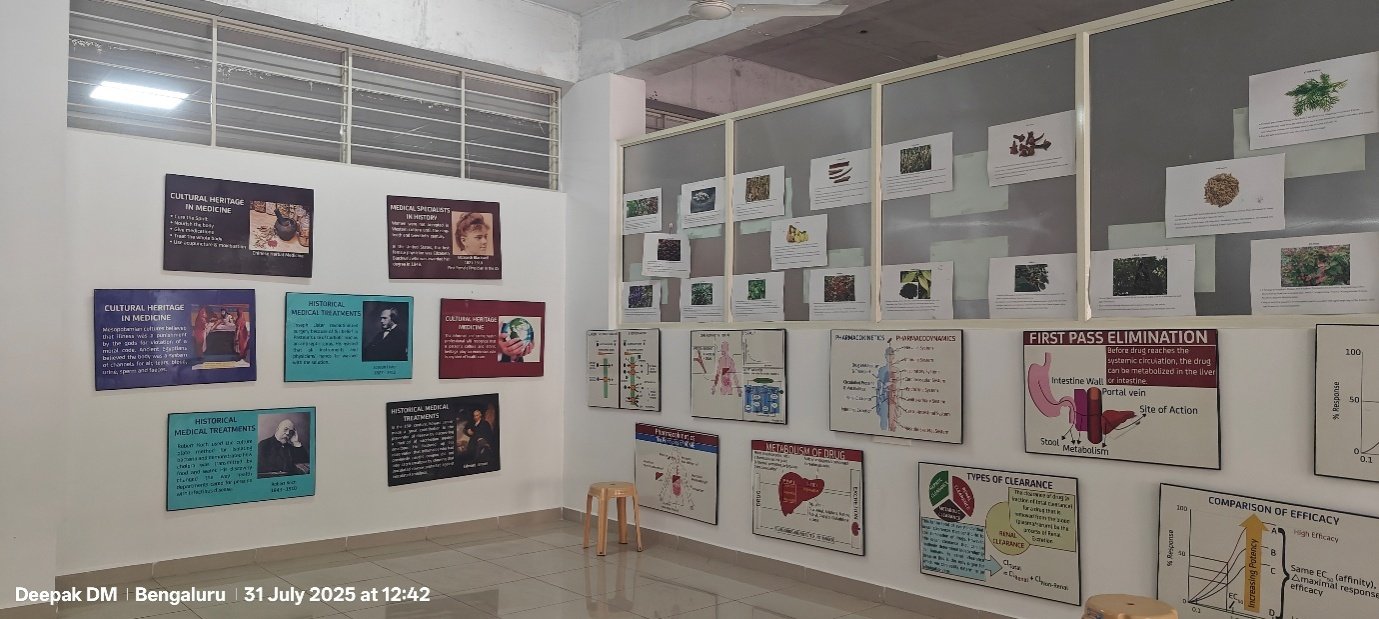
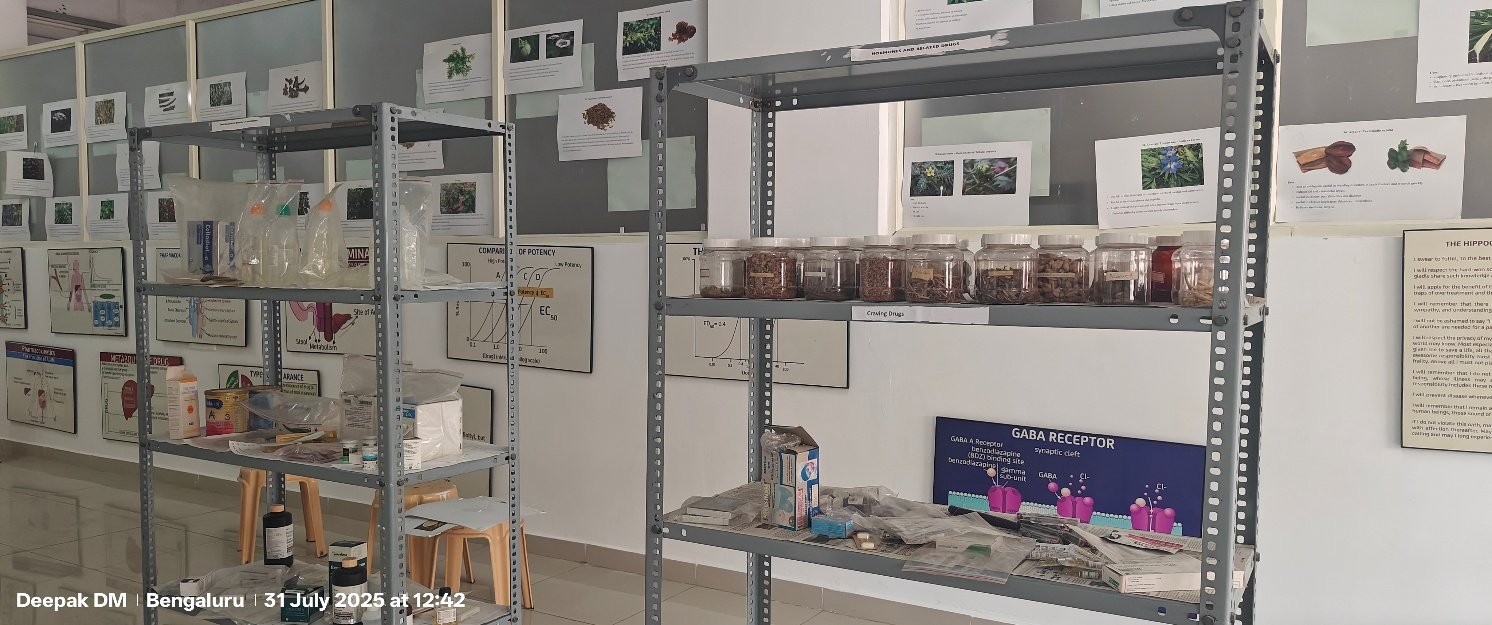
Pharmacology Department Research Laboratory:
Key functions are as below:
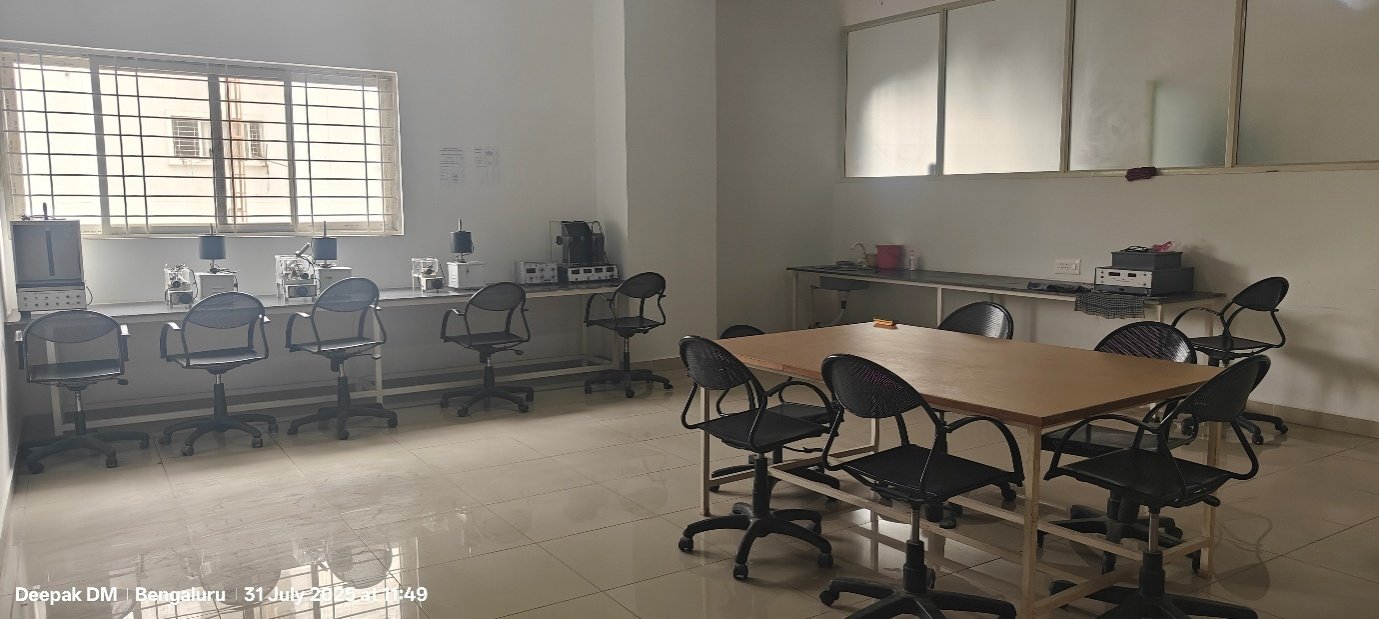
Pharmacology Demo room:
